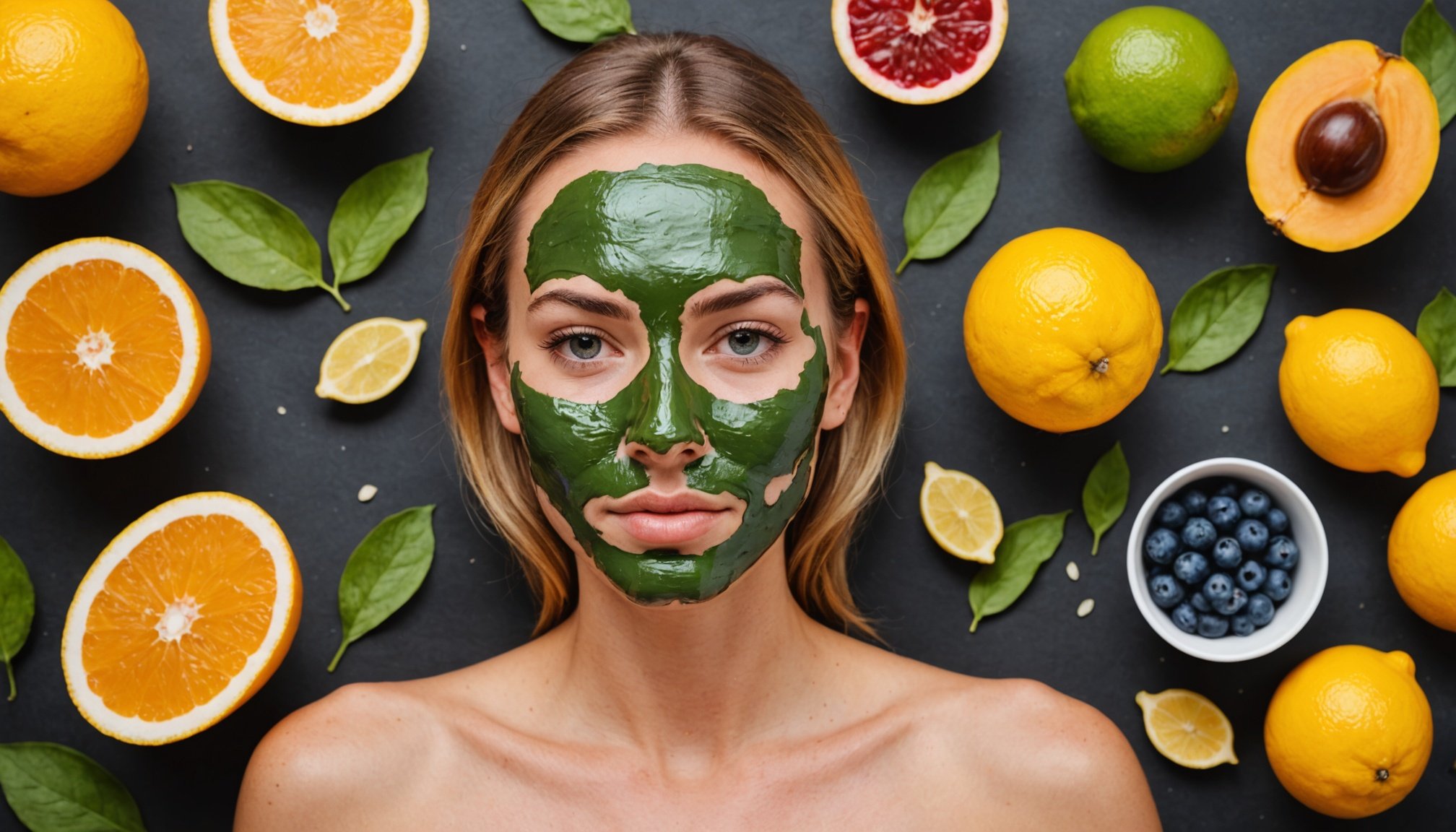Understanding Oily Skin
Oily skin types can often lead to common concerns such as acne, enlarged pores, and a shiny complexion. Understanding your skin type is crucial for effective care. This skin type is characterized by an overproduction of sebum, which can be influenced by genetics, hormonal changes, and environmental factors. Recognizing these characteristics and causes of oily skin is essential in addressing its impact on overall skin health.
Having oily skin presents unique challenges in maintaining skin health. Excessive oil can clog pores, promote acne breakouts, and add a greasy appearance to the skin. However, it’s not all negative. Sebum is also vital for keeping the skin hydrated and protecting it from environmental damage. Balancing these factors is key.
This might interest you : Optimal water temperatures for washing colored fabrics: essential tips to preserve vibrancy and prevent fading
When it comes to skin care basics, identifying oily skin types helps tailor a skincare regimen that addresses these specific concerns. Using products that control oil production while maintaining moisture levels is important. Knowing the intricacies of your skin type allows for better management and prevents issues exacerbated by unsuitable skincare products. In-depth knowledge of your skin fosters an environment where oily skin can thrive with the right approach.
Benefits of DIY Face Masks for Oily Skin
Creating DIY face masks at home offers several distinct advantages, especially for those managing oily skin. Firstly, these masks are incredibly cost-effective. Using common kitchen ingredients, you can create a solution that addresses your specific skincare needs without the expense of commercial products. This affordability makes it more accessible and sustainable for everyday use.
Also read : Unlock transformative yoga practices for ultimate stress relief solutions
In addition to being budget-friendly, DIY masks help you avoid the harsh chemicals often found in commercial skincare. Many store-bought products contain synthetic ingredients that can irritate or worsen oily skin conditions. By using natural skincare alternatives, you tailor your routine to your skin’s requirements, fostering a more harmonious skincare approach.
Finally, the ability to customize masks is a notable benefit. Individuals can experiment with various ingredients to find the perfect balance for their skin. Whether it’s adding honey for antibacterial properties or oatmeal for soothing effects, adjusting the ingredients ensures your skin gets exactly what it needs. Such personalization not only enhances the efficacy of the masks but also deepens your understanding of what works best for your skin, promoting a healthier, naturally radiant complexion.
Key Ingredients for DIY Face Masks
Discover the power of natural ingredients found in your kitchen. These simple elements can transform your skincare routine, offering benefits that commercial products may lack.
Common Kitchen Ingredients
- Honey: Known for its antibacterial properties, honey is a top choice for oily skin, helping to clear acne while soothing the skin.
- Yogurt: It serves as a natural exfoliant, gently removing dead skin cells to reveal a fresh complexion.
- Lemon Juice: This ingredient is excellent for oil control, naturally balancing and brightening the skin’s surface.
Additional Beneficial Ingredients
- Oatmeal: With its soothing effects, oatmeal calms irritated skin and absorbs excess oil.
- Aloe Vera: Known for its hydrating qualities, it provides moisture without adding oil, benefiting those with oily skin types.
- Essential Oils: These oils, such as tea tree or lavender, offer targeted benefits like reducing blemishes or calming inflammation. They enhance the efficacy of your masks, making them more customised to your needs.
Embrace these natural ingredients to create effective, tailored DIY face masks at home, ensuring your skincare is both affordable and beneficial.
Step-by-Step Guide to Crafting Your DIY Face Mask
Creating your own DIY face mask can be simple and rewarding. Start by gathering kitchen staples like yogurt, oatmeal, and honey. Mix these in a clean bowl, using one tablespoon of each ingredient. Adjust proportions based on your texture preference or specific skin needs.
Before you embark on crafting your own mask, it’s beneficial to understand some basic mixing methods. Use a spoon to blend until you achieve a smooth, spreadable paste. This ensures even application and maximizes the mask’s effectiveness.
Prepping your skin is crucial. Cleanse your face with a gentle cleanser to remove dirt and excess oil. This step ensures your skin is ready to absorb the wholesome benefits of your homemade mask. Pat your face dry with a clean towel, avoiding any harsh rubbing.
Adapting the mask to your preferences empowers you to meet your skin’s unique needs. Whether you need more soothing effects or exfoliation, the flexibility allows tailor-made allocation of ingredients. Use this guide as a foundation to begin your own skincare journey, opting for ingredients that cater to your skin type.
Application Tips for Maximum Effectiveness
Achieving the best results with your DIY face masks requires understanding the nuances of mask application. Regularity in your skincare routine is crucial. For oily skin, using a mask 1-2 times per week helps manage oil without over-drying your skin. Consistency ensures that your skin reaps the maximum benefits, maintaining balance and clarity.
Applying your mask correctly is equally important. Begin by using clean hands or a brush to evenly spread the mask over your face, avoiding sensitive areas like the eyes and lips. Ensuring the mask is applied in a thin, even layer allows for better absorption and effectiveness. Leave it on for 10-15 minutes, allowing natural ingredients to work their magic. Rinse off thoroughly with lukewarm water, pat dry with a clean towel.
Post-mask care is a valuable step often overlooked. Following up with a hydrating yet oil-free moisturizer helps lock in the benefits without adding excess oil. Incorporating this step ensures that your skin remains hydrated and protected. Adjust your skincare regimen based on the mask’s effect to suit your skin’s current conditions, fostering a more robust and impactful routine.
Safety Precautions and Considerations
Ensuring skin safety is paramount when using DIY face masks. Before incorporating any new ingredients, it is crucial to perform a patch test. This helps in identifying potential allergies or sensitivities, allowing you to gauge how your skin might react. To perform a patch test, apply a small amount of your mask mixture to a discreet area, like the inside of your wrist, and wait 24 hours to observe any adverse reactions.
Recognizing allergies early is essential; look for signs such as redness, itching, or swelling. These could indicate that an ingredient is not suitable for your skin. Some commonly thought gentle items might still trigger reactions due to individual skin differences.
When using citrus ingredients like lemon juice, proceed with caution as they can increase your skin’s sensitivity to sunlight. Always wear sunscreen if venturing outdoors after applying masks containing citrus. Essential oils should also be used sparingly and diluted properly to prevent skin irritation. Prioritizing ingredient awareness and careful testing can ensure a safe and effective skincare journey. By taking these precautions, you ensure your DIY routine offers the benefits your skin deserves while minimizing risks.
User Testimonials and Success Stories
Listening to real-life results can profoundly inspire others on their skincare journey. Numerous users have shared positive experiences with DIY face masks for oily skin. For instance, Sarah from the skincare community noted a significant reduction in acne and oiliness after consistently using honey and yogurt masks. Her testimony underlines the potential transformational power of tailored DIY skincare practices.
Another engaging story is that of James, who, after facing persistent shiny complexion, turned to natural remedies, incorporating oatmeal and aloe vera into his regimen. His success exemplifies the benefits of adapting home remedies according to individual skin sensitivities and preferences, leading to a healthier complexion without reliance on synthetic products.
Encouraging community support plays a vital role in these transformations. By sharing experiences and tips within the skincare community, individuals gain insights and confidence in crafting their routines. This collaborative approach to skincare awareness fosters a supportive environment that highlights the role of consistency and personalization. Such stories emphasize the importance of experimenting with different natural ingredients and maintaining persistence for visible results, ultimately cementing the efficacy and accessibility of homemade solutions for oily skin challenges.
Importance of a Consistent Skincare Routine
Maintaining a consistent skincare routine is paramount for effectively managing oily skin types. It aids in the control of oil production while ensuring the skin remains healthy and protected. Establishing and sticking to a routine helps in addressing the common concerns associated with this skin type, such as acne and enlarged pores.
A comprehensive routine often includes the use of specific cleansers and moisturizers. Cleansers are crucial for removing excess oil and impurities without stripping the skin of its essential moisture. Selecting a gentle yet efficient cleanser can markedly improve the skin’s balance. Similarly, an appropriate moisturizer maintains hydration levels and prevents the overproduction of sebum, which is a significant concern for oily skin.
Mindfulness in daily habits can lead to dramatic improvements. Observing how your skin reacts to different products allows for necessary adjustments, ensuring that your regimen is tailored precisely to your skin’s needs. Moreover, consistent use of products can offer long-lasting benefits, helping you maintain clear and healthy skin. Encourage a routine that includes mindful selections of products, tailored to your skin’s unique requirements, fostering a consistent and beneficial practice.











